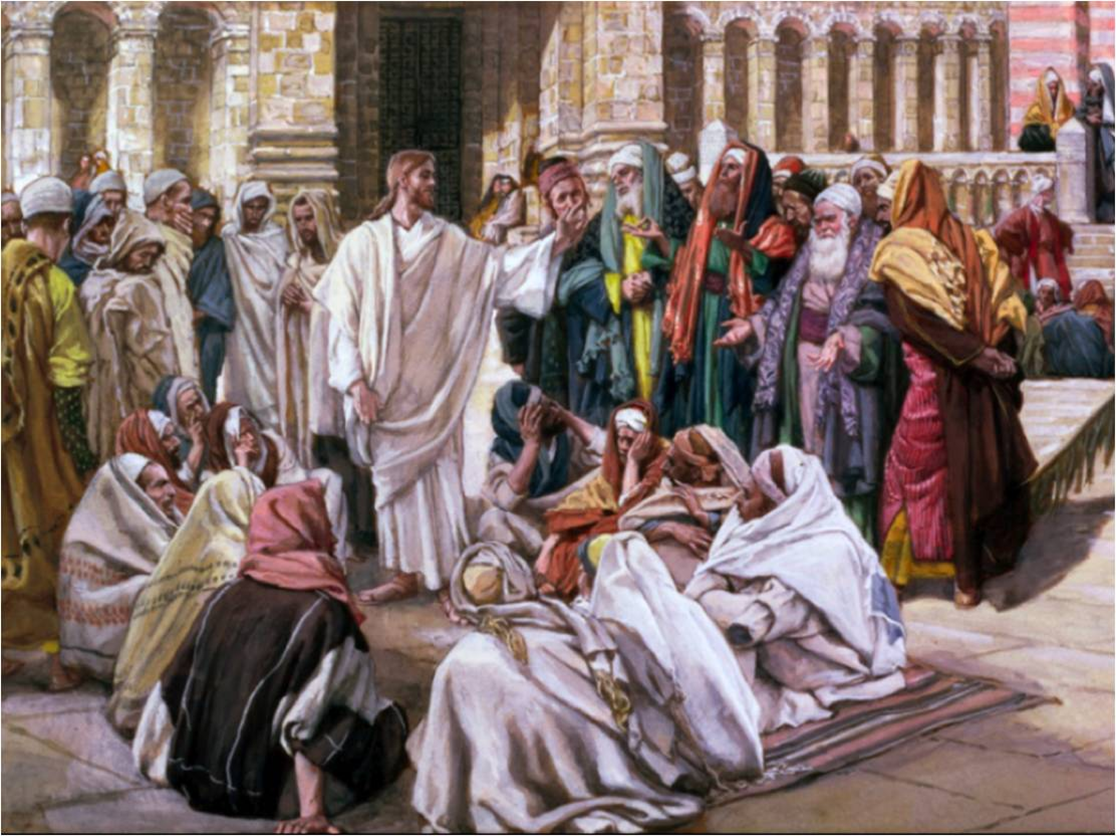 April 27, 2016 (Wednesday)
April 27, 2016 (Wednesday)
This evening at Bethel Baptist Church, Ingleside, we will take a look at Mark’s account of Jesus’ visit to Jerusalem on Tuesday of Holy Week.
He went into the Temple that he had cleansed the day before, where he was confronted by the Scribes and Pharisees, who hoped their tricky questions would confound him and make him less popular with the people who were watching and listening.

They were unsuccessful to say the least. They asked about the source of his authority, but he replied by asking them what they thought of John the Baptist’s authority. They could not reply because the onlookers would consider any answer they gave as inappropriate.
Jesus then gave a parable of tenant farmers who attacked and killed their landlord’s bill collectors and finally did the same to the landlord’s son. The religious leaders knew that he was talking about them and their rejection of Jesus. They decided then and there that they would have him killed.
They thought they would confuse him with a question about paying taxes to the Romans, but they failed as he confused them instead with his answer.
Then the Sadducees, who don’t even believe in the resurrection, asked him a difficult question about the afterlife. His answer made their question look foolish, making them feel discredited by the people who were listening to the conversation they were having with Jesus.
Jesus then produced one idea after another that they could not refute: the law of love, the identity of Jesus as the Son of God, the vanity of the religious leaders, and the real measure of gifts to God.
Leaving the Temple courts, he continued conversing with his disciples, telling them that, because of Israel’s rejection of God, the Temple–indeed the entire city–would be totally destroyed by the Romans. He shared thoughts about the end of the age, but told them that no one, not even he himself, knew when those events shall take place.
Jesus and his disciples then returned to Bethany, ending a very eventful day in Jerusalem.
The stage had been set for the arrest, trial and crucifixion of Jesus. His cleansing the Temple and confounding the leaders caused them to be filled with rage and determined to kill him.
What had Jesus done to deserve such condemnation? He told the truth. When a sinner hears the truth, he can either repent or rebel. The religious leaders were hypocrites who chose the latter.
